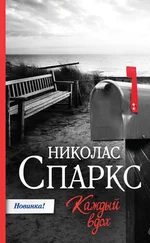“Not in New Jersey.”
“Of course they do. Contestants come from every state. You just have to be in high school.”
“And you won?”
“Yes, but that’s not the point,” he said, standing up and taking her hand again. “I was trying to tell you that after I won – the first time, not the second time,” he teased, “I was jabbering on about my goals and what I wanted to do, and of course, my dad was just lapping it up. But my mom started to clear the table, and after a while she interrupted my grand fantasy to tell me a story… and it’s stayed with me ever since.”
“What did she say?”
“A young man lives in a tiny, run-down cottage on the beach and he rows his boat out into the ocean every day to fish, not only because he needs to eat, but because he feels peaceful on the water. But more than that, he also wants to improve his life and that of his family, so he works hard at bringing in bigger and bigger catches. With his earnings, he eventually buys a bigger boat so he can make his business even more profitable. That leads to a third boat and then a fourth boat, and as the years pass and the business continues to grow, he eventually accumulates a whole fleet of boats. By then, he’s rich and successful, with a big house and a thriving business, but the stress and pressure of running the company eventually take their toll. He realizes that when he retires, what he really wants more than anything is to live in a tiny cottage on the beach, where he can fish all day in a rowboat… because he wants to feel the same sense of peace and satisfaction he experienced when he was young.”
She cocked her head. “Your mom’s a wise woman. There’s a lot of truth in that story.”
“Do you think so?”
“I think,” she said, “that the point is that people rarely understand that nothing is ever exactly what you think it will be.”
By then, they’d reached the entrance to the maze. Luke led her through, pointing out openings that dead-ended after a series of turns and others that led much farther. The maze covered nearly an acre, which made it a huge draw for kids.
When they reached the exit, they strolled toward the harvested pumpkins. While many had been placed up front, some were stacked in bins, others clustered together in loose piles. Hundreds remained in the field beyond.
“That’s it,” he said.
“It’s a lot. How long did it take you to set all this up?”
“Three days. But we had other things to do, too.”
“Of course you did.”
She sorted through the pumpkins, eventually picking out a medium-size one and handing it to Luke before they walked back to the truck, where he loaded it into the bed.
When he turned, Sophia was standing in front of him, her thick blond hair almost whitish in the starlight. Instinctively, he reached first for one hand and then the other, and the words came out before he could stop them.
“I feel like I want to know everything about you,” he murmured.
“You know me better than you think,” she said. “I’ve told you about my family and childhood, I’ve told you about college and what I want to do with my life. There’s not much else to know.”
But there was. There was so much more, and he wanted to know everything.
“Why are you here?” he whispered.
She wasn’t sure what he meant. “Because you brought me here?”
“I mean why are you with me?”
“Because I want to be here.”
“I’m glad,” he said.
“Yeah? Why?”
“Because you’re smart. And interesting.”
Her head was tilted up, her expression inviting. “The last time you called me interesting, you ended up kissing me.”
He said nothing to that. Instead, leaning in, he watched her eyes slowly close, and when their lips came together, he felt a sense of discovery, like an explorer finally reaching distant shores he’d only imagined or heard about. He kissed her again and then again, and when he pulled back, he rested his forehead against hers. He drew a deep breath, struggling to keep his emotions in check, knowing that he didn’t love her simply in the here and now, but that he would never stop loving her.
11
Ira
It is now Sunday afternoon, and once it gets dark, I will have been here for more than twenty-four hours. The pain continues to wax and wane, but my legs and feet have gone numb from the cold. My face, where it rests against the steering wheel, has begun to ache; I can feel the bruises forming. My greatest torment, however, has become thirst. The thought of water is excruciating, my throat prickling with each breath. My lips are as dry and cracked as a drought-stricken field.
Water, I think again. Without it, I will die. I need it and can hear it calling to me.
Water
.
Water
.
Water
.
The thought won’t leave me, blocking out everything else. I have never in my life craved such a simple thing; I have never in my life spent hours wondering how to get it. And I do not need much. Just a little. Even a capful will make all the difference in the world. A single drop will make a difference.
Yet I remain paralyzed. I don’t know where the bottle of water is, and I’m not sure I’d be able to open it even if I could find it. I’m afraid that if I unbuckle the seat belt, I might topple forward, too weak to stop my collarbone from smashing into the steering wheel. I might end up crumpled on the floor of the car, wedged into a position from which I can’t escape. I can’t even imagine lifting my head from the steering wheel, let alone rummaging through the car.
And still, my need for water calls to me. Its call is constant and insistent, and desperation sets in. I am going to die of thirst, I think to myself. I am going to die here, as I am. And there is no way I will ever get to the backseat. The paramedics will not slide me out like a fish stick.
“You have a morbid sense of humor,” Ruth says, interrupting my thoughts, and I remind myself that she is nothing but a dream.
“I think the situation calls for it, don’t you?”
“You are still alive.”
“Yes, but for how much longer?”
“The record is sixty-four days. A man in Sweden. I saw it on the Weather Channel.”
“No. I saw it on the Weather Channel.”
She shrugs. “It is the same thing, yes?”
She has a point, I think. “I need water.”
“No,” she says. “Right now, we need to talk. It will keep your mind from fixating on it.”
“Like a trick,” I say.
“I am not a trick,” she says. “I am your wife. And I want you to listen to me.”
I obey. Staring at her, I allow myself to drift again. My eyes finally close and I feel as if I’m floating downstream in a river. Images coming and going, one right after the other as I am carried past on the current.
Drifting.
Drifting.
And then, finally, it solidifies into something real.
In the car, I open my eyes and blink, noticing how Ruth has changed from my last vision of her. But this memory, unlike the others, is sharp-edged and clear to me. She is as she was in June of 1946. I am certain of this, because it is the first time I’ve ever seen her wear a casual summer dress. She, like everyone else after the war, is changing. Clothes are changing. Later this year, the bikini will be invented by Louis Réard, a French engineer, and as I stare at Ruth, I notice a sinuous beauty in the muscles of her arms. Her skin is a smooth walnut hue from the weeks she’d just spent at the beach with her parents. Her father had taken the family to the Outer Banks to celebrate his official hiring at Duke. He had interviewed at a number of different places, including a small experimental art college in the mountains, but he felt most at home among the Gothic buildings at Duke. He would be teaching again that fall, a bright spot in what had otherwise been a difficult year of mourning.
Читать дальше



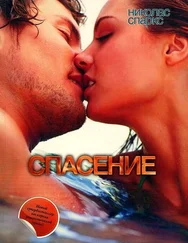




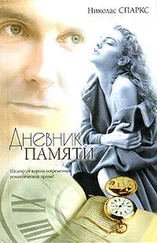
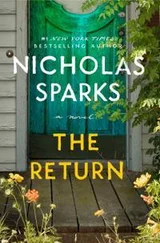
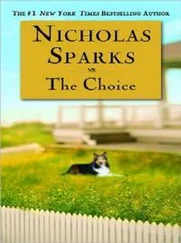
![Николас Спаркс - Каждый вдох [litres]](/books/414723/nikolas-sparks-kazhdyj-vdoh-litres-thumb.webp)
